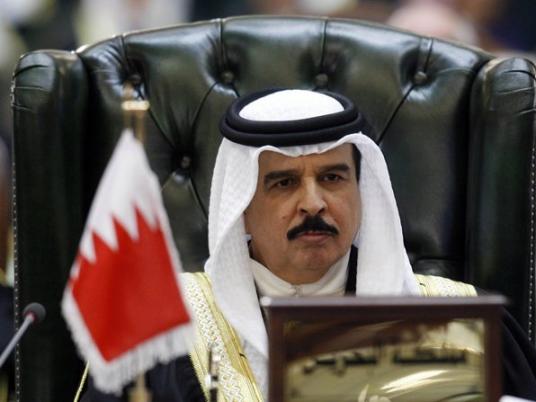DUBAI – Bahrain's special security court on Thursday sentenced a protester to death for killing a policeman, and gave doctors and nurses who had treated injured protesters during the country's uprising earlier this year lengthy prison sentences, a lawyer said.
Attorney Mohsen al-Alawi said the tribunal, set up during Bahrain's emergency rule, convicted and sentenced 13 medical professionals each to 15 years in prison. In addition, two doctors were sentenced to 10 years each while five other medics convicted on Thursday got shorter prison terms of 5 years each.
Thursday's harsh sentences suggest the Sunni authorities in the Gulf kingdom will not relent in pursing and punishing those they accuse of supporting the Shiite-led opposition and participating in dissent that has roiled the tiny island nation.
Earlier this year, the same special court sentenced two other protesters to death for killing a police officer in a separate incident.
Al-Alawi, the lawyer, said the 20 medical professionals, who were charged with various anti-state crimes, and the protester who got the death sentence on Thursday can all appeal their verdicts.
A Bahraini rights group identified the protester sentenced to death as Ali Yousef Abdulwahab. The Bahrain Youth Society for Human Rights said in a statement that another suspect, Ali Attia Mahdi, was convicted on Thursday as Abdulwahab's accomplice and sentenced to life imprisonment.
Hundreds of activists have been imprisoned since March when Bahrain's rulers imposed martial law to deal with protests by the country's Shiite majority demanding greater rights and freedoms.
More than 30 people have been killed since the protests began in February, inspired by Arab uprisings elsewhere. The Sunni monarchy that rules this strategically important Gulf nation, which is home to the US Navy's 5th Fleet, responded with a violent crackdown.
Thursday's sentences came a day after the tribunal upheld sentences for 21 activists convicted for their roles in the protests, including eight prominent political figures who were given life terms on charges of trying to overthrow the kingdom's Sunni rulers.
The court's decision reflected the authorities' unwillingness to roll back punishments for those considered central to the anti-government uprising, although officials have taken some steps to ease tensions. They include releasing some detainees and reinstating state workers purged for suspected support of the seven-month-old protest movement.
The doctors' trial has been closely watched by rights groups, which have criticized Bahrain's use of the security court, which has military prosecutors and both civilian and military judges, in prosecuting civilians.
Shiites account for about 70 percent of Bahrain's population of some 525,000 people, but claim they face deep-rooted discrimination such as being blocked from key government and security posts.
The Sunni dynasty, which has ruled the island for more than 200 years, has retained crucial support from the West and Gulf Arab neighbors through the months of protests and crackdowns.
Bahrain's rulers imposed martial law in March and invited a Saudi-led Gulf force to help them deal with the unprecedented dissent. Sunni rulers of Bahrain's neighbors like Saudi Arabia and the United Arab Emirates fear that any concessions to the Shiite protesters in Bahrain could widen the influence of Shiite powerhouse Iran.




